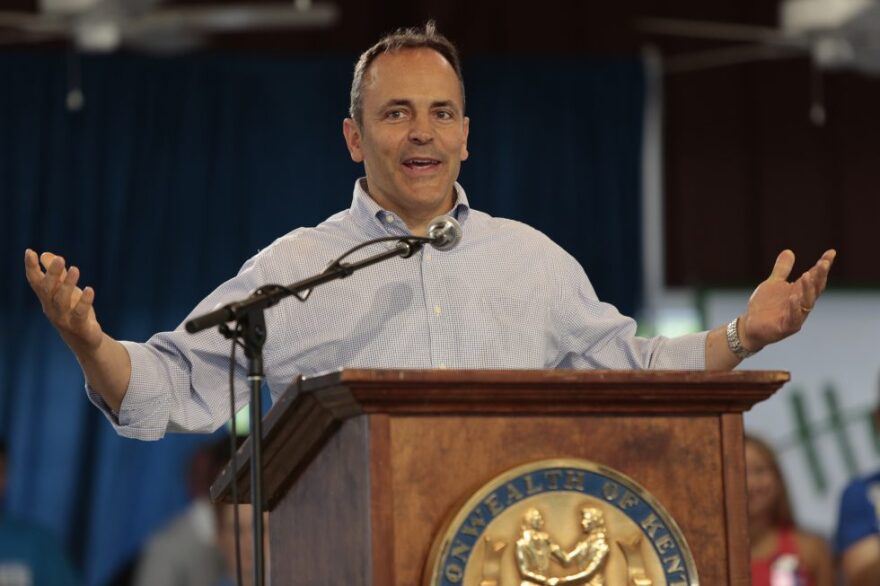Gov. Matt Bevin’s administration is suing the federal government to block a rule that says medical providers and insurance companies can’t discriminate against transgender patients. The states of Nebraska, Wisconsin, Kansas and Texas, along with religious provider groups, filed suit Tuesday.
The federal rule is intended to prevent health care providers from refusing care for transgender patients, and for insurers to do away with bans on covering gender reassignment services, including hormone therapy or surgery.
The lawsuit was filed in the Northern District of Texas, under the same judge who on Monday issued an injunction barring federal government agencies from taking action against school districts that don’t allow transgender students to use the bathroom that corresponds with their gender identity rather than their sex at birth.
In a statement, Bevin said the rule was an infringement on Kentuckians’ constitutional rights.
“I intend to fight this type of liberal foolishness at every turn and will stand firm in protecting the rights and values of Kentuckians,” he said.
The regulation at issue, known as section 1557, was approved as part of the Affordable Care Act, but there weren’t firm rules for providers and insurers until May. Transgender people, along with any patient, can now file a complaint with the Office of Civil Rights if they believe they’ve been denied care due to their gender, race, color, national orgin, age or disability. That includes health care providers and insurers that receive federal money through programs such as Medicare and Medicaid.
If the suit is successful, the federal government could not enforce the rule.
The federal government also said in the final rule that if a health care group found that abiding by the protections went against religious freedom laws, the rule would not apply.
According to the lawsuit, the rule “seeks to override the medical judgment of health care professionals” and that it “forces doctors to perform controversial and sometimes harmful medical procedures ostensibly designed to permanently change an individual’s sex.”
But Sasha Buchert, a staff attorney with the Transgender Law Center, said the rule doesn’t require providers who aren’t offering gender-reassignment services such as hormone therapy, counseling or gender reassignment surgery to begin doing them.
“If you’re a health care provider and you receive money from the federal government, all it says is that if you’re offering something like hormone replacement therapy to someone who is non-transgender, you can’t deny that treatment to a transgender person,” Buchert said. “It doesn’t require providers do something they’re not already doing.”
The suit says even that goes against the opinions and consideration of many medical professionals.
“Despite the widespread, well-documented debate about the medical risks and ethics associated with various medical transition procedures, even within the transgender community itself, the new rule attempts to preempt the serious medical and moral debate,” the lawsuit reads.
Advocates say a benefit of the rule is to make routine care more accessible to transgender patients. Even routine checkups, gynecological visits and basic care can be a challenge. Someone who is transitioning might still have organs associated with the other gender, such as a uterus and breast tissue for someone born as a woman but who identifies as a man.
Robin Maril, senior legislative counsel at the Human Rights Campaign, an advocacy group for lesbian, bisexual, gay and transgender people, said there’s a shortage of health care providers who perform gender-reassignment surgery. That’s because until the rule, insurers could have exclusions providing transgender-specific coverage.
“There are actually long wait lists for getting gender-affirming surgery because doctors just aren’t trained in it because it wasn’t covered, and still in a lot of cases, isn’t covered by health insurance,” Maril said. “If you can’t get paid for it, why be a doctor that does it?”
If the lawsuit is successful, it would block enforcement unless the Obama administration appeals.







